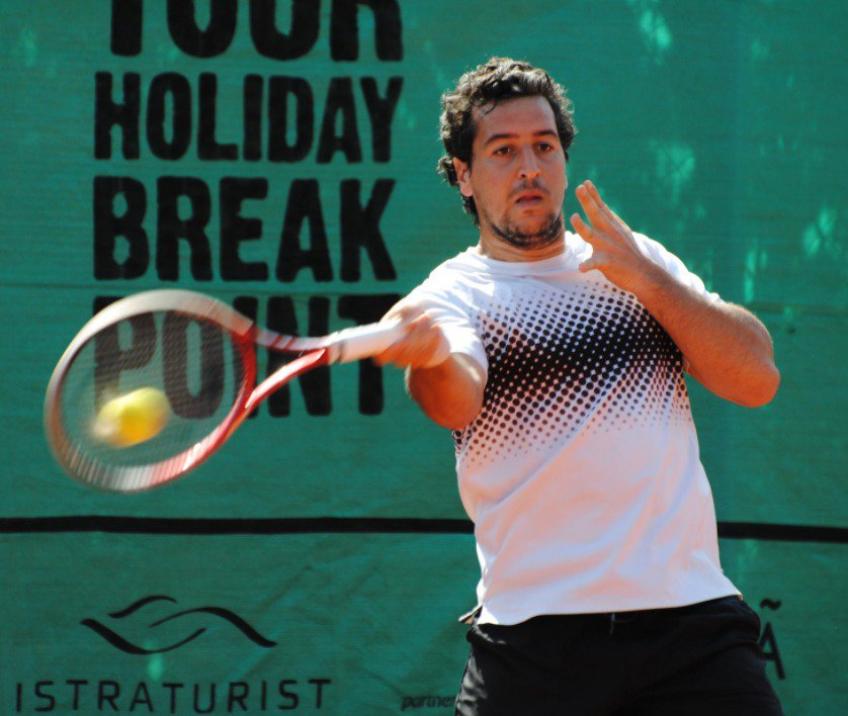Welcome to Tennis Elbow, the column that looks back on the week that was in the world of tennis. This week, Charles Blouin-Gascon discusses Lamine Ouahab’s stunning win in Marrakech.
They say you cannot win if you do not play.
We saw proof of that last week in what’s undeniably the most shocking result of this young season on the men’s side, a stunning defeat from veteran and Top 30-mainstay Philipp Kohlsschreiber by the final score of 2-6, 6-0 and 7-6(3) at the hands of Lamine Ouahab, he of the No. 617 ranking in the world.
Let’s rely on another idiom here, because this is really just perfect and such a momentous occasion: this win was, as they say, one major win for Ouahab the man and an even bigger one for all tennis club pros across the world.
The miracle of Marrakech ?
From 2-5 down in the third set, Morocco’s World No. 617 Lamine Ouahab STUNS No. 34 Philipp Kohlschreiber… pic.twitter.com/4JOAoFbP84
— Tennis TV (@TennisTV) April 11, 2018
This wasn’t lost on Ouahab himself. “Obviously I’m very happy to win a match like this, especially at home. I’m very proud I was able to put up a fight and get through it,” Ouahab told Sport360 after his win. “For me it’s a big opportunity to play these players. Maybe my ranking got lower because I’m not playing consistently but I believe I have the level to beat these guys, especially on a given match day. I’m very confident and try my best to win every match.”
Granted, Ouahab is no slouch and is not actually a beer league player. (That’s just us being cute.) He’s been at it for a long time now, having turned pro in 2002 and being a mainstay ever since, representing Algeria until 2013 and then switching to Morocco. He once beat No. 24-ranked Guillermo Garcia-Lopez and has a career-high ranking of No. 114, which at first glance seems pretty high but then you tell yourself that it means that there were only 113 people on this planet with more aptitude than him on that week of 2009 and suddenly it’s more impressive than what you thought.
(The lesson, here? If the No. 617-ranked player in the world is that good, then there’s absolutely no way any one of us armchair players could compete when we pester how player X is playing so badly on any one day.)
But of course that’s far from the most impressive feat Ouahab has ever accomplished. Way back when, the 33-year-old was once a junior player, and that’s where he truly shined. He beat none other than Rafael Nadal in the boys’ semifinal at Wimbledon in 2002.
In other words, if Ouahab wasn’t King back then he wasn’t far off. “When I was 16 I made the semifinals at Roland Garros juniors,” he told Sport 360. “I was No. 4 in the world as a junior. I beat Rafa, Berdych, Gasquet.”
And then he kind of stopped beating all those guys. Performance at the junior level is a definitely poor predictor of future, ATP-level matches, but still. Just think: Ouahab lost the 2002 Wimbledon title after losing against Todd Reid—you say «who?», and we say that’s the point.
But Ouahab didn’t stop winning simply through factors of his own. “I had the opportunity to play for France, but I didn’t do it to keep playing for my country,” Ouahab said. “But unfortunately, the federation, the ministry, the sponsors … nobody cares.”
Ouahab (?@TennisTV ) pic.twitter.com/RzGftYPjjT
— doublefault28 (@doublefault28) April 11, 2018
Nobody cares, and as a result Ouahab really never managed to make a living playing this sport he loves and for which he really was and is quite gifted: he’s amassed about $443,000 combined for his singles and doubles performance through his career. That’s not much, about 29,000 per year since 2002.
This result in Marrakech is proof that it’s dumb, lazy and too easy for all of us to complain at whomever’s disappointing results on any given day: even the supposed bad pros are just so unbelievably talented and anyone truly can beat anyone else. Because sometimes the difference between an Ouahab and a, say, John Isner comes down to a confluence of factors.
The man could have presumably joined France and been giving the opportunity to gain access to a much better infrastructure and support system. And maybe, who knows, a few more notable wins like this one last week.
But then he would have turned his back on his native country. What kind of choice is that, especially for a teenager?
Follow Charles Blouin-Gascon on Twitter @RealCBG





















